Documentaries in Competition
Social
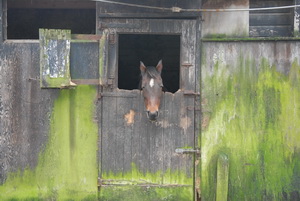
The film is a son’s personal quest to find his father and an in-depth examination of the real gambler’s soul. A search for the universal tragedy behind hardened risk-taking and the reality of how the tension and the ecstasy contrast with the pain and the loneliness. The director focuses on three gamblers: a bookie, a poker player and a criminal roulette addict who know all about winning and losing. In this way he delves artistically into the mysterious mind of his father, who was not just a gambler, but a player of life.
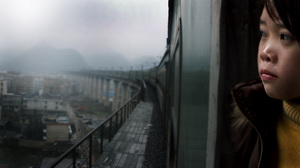
The Zhangs left the poverty of the country 16 years ago to try their luck in the new economic zones, leaving their daughter behind with her grandparents. Now they work long hours in one of the numerous gray factories that supplies the West with cheap clothing. That said, the most toilsome endeavor is the New Year trip. The sight of the multitude gathered at the station is disconcerting, and the couple waits for a ticket for days. When a snowstorm throws rail service into disorder, the chaos is complete. They still manage time and again, but will they also succeed in keeping the family together and ensuring an education for their children, with the money they send home? Painful moments reveal that the patience the Chinese are known for has its limits.
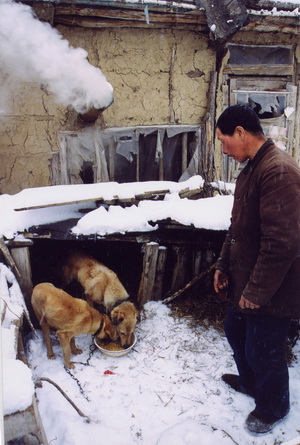
A century of intensive logging has deforested the Changbai mountain range and left its inhabitants, who relied on the timber industry for their livelihood, unemployed and destitute. The hunter himself was once employed by the Bureau of Forestry; after he was laid off, he turned to herding and hunting to survive. Xiao Li, reduced to vagrancy after he was laid off from his job, sought refuge with the hunter, who offered him room and board in exchange for tending the goats and doing some odd jobs around the house. So it is that this tranquil valley shows signs of human habitation: the smell of cooking, smoke drifting from a chimney and the mournful echo of Xiao Li\'s singing.
When the government begins clearing away houses to build a reservoir that will supply drinking water to Harbin, a city of over nine million people, the hunter and his household are asked to move. By wintertime, the house has been half-demolished but the family remains: they brave the heavy snowstorms and await the arrival of spring. Just before Chinese New Year, government inspectors investigating reports of illegal poaching find and confiscate the stores of meat that the family has set aside to last them through the long winter. The hunter flees to avoid capture, his wife returns to her parents\' home and Xiao Li is arrested, but manages to escape. When he returns to the mountain, frostbitten and exhausted, he finds himself alone once again, with only his pets and songs to keep him company...
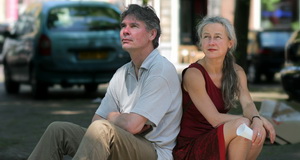
In 2005, religious groups in Italy and the U.S. accused Dutch paediatricians of using Nazi methods and allegedly killing premature newborns because of their handicaps.
Yet doctors have sworn the Hippocratic oath that they will do all they can to heal the sick and save lives. Thanks to modern technology they can do more and more. As a consequence they have to ask themselves if every human being who can be kept alive will lead a life worth living. Should every life be saved at whatever cost?
From up close and without comment, If We Knew shows how a group of paediatricians cope with tough ethical questions and the impossible decisions they have to make.
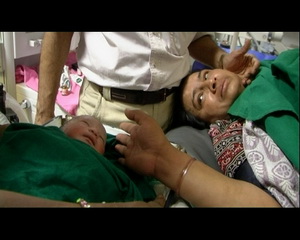
Doron, an Israeli entrepreneur with a high tech background proposes a new service - Baby production. The baby producer (as he introduces himself) provides customers with a cost effective solution using outsourcing of the surrogacy element to India as way to lower prices. The preferred genetic material is selected by the clients and the rest is left in the hands of the producer: Sperm and eggs are purchased on-line and multiple embryos are produced and frozen. Packed in liquid nitrogen only the embryos that fit the customers preferences are shipped by air to India - where they are implanted into the wombs of local surrogates. The customers arrive only at the end of the nine month pregnancy period to pick up their babies.
Today, technology has turned \'making a baby\' into an act independent of sex. And globalization is making it affordable. All one needs is a credit card. Instructions can be found on YouTube.
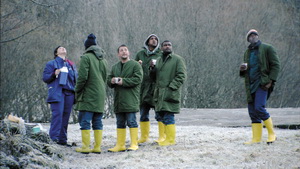
Asian
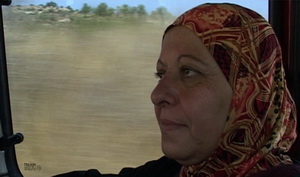
KJ (HK,China)
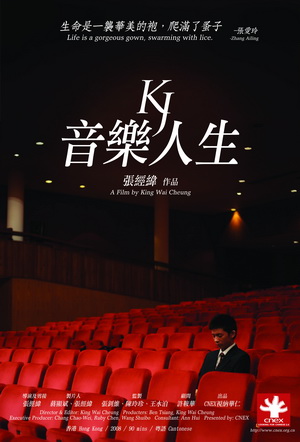
At the age of 11, KJ won the Best Pianist price and went to Czech to perform with a professional orchestra. Touching on subjects such as the meaning of life, God and the artistic process, the director’s 6-year-conversations with KJ reveal how a young man inspires by his music teacher, Nancy Loo and how he conflicts with his peers and parents. KJ is not about the victory of a genius, but how he learns to be a “human being”.
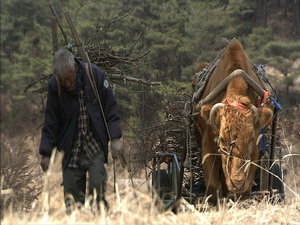
Over the decades, the farmer and his beast have formed a relationship that transcends language and species. When spring arrives and Choi learns that his ox will likely be gone by the same time next year, the ageing farmer truly begins to fear for the future.
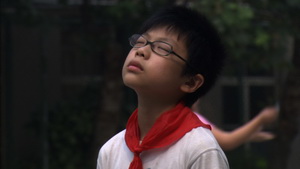
Gu is another type, he strives for becoming the class leader. In an election, he finally succeeded. He is keen to be focused on. If the teacher would not let him answer questions, he may spot howl. At the end of the semester, he was finally able to confront their own problems, decided to make changes.
These children seem live the same day every day, while their bodies are quietly changing. They begin to develop. This makes the girls become especially excited. Children fill with angelic smile every day. They are kind, honest, lovely. After various growth stories, finally they become people like us.
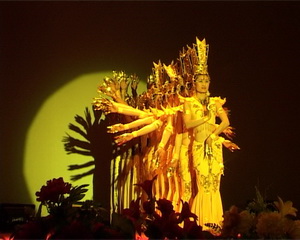
Fortune Teller (China)
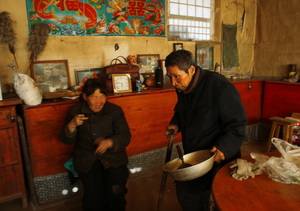
Faced with the bitter cold of winter and a campaign against prostitution and pornography, the couple returns to their hometown, Qinglong, where they visit Pearl Shi’s Brother and then stay at Li Baicheng’s old family house …… Spring is coming; they take to the road once more and travel to a fair where they wait for their luck to turn.
History & Biography
John Rabe: The Unlikely Hero of Nanking (Germany)
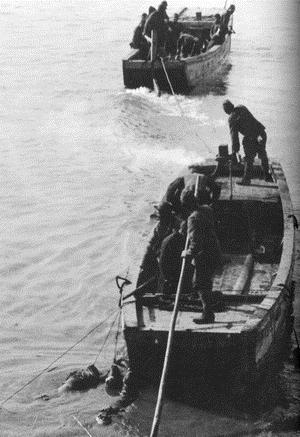
John Rabe, head of a Siemens subsidiary, together with other foreigners, established a safety zone to save the lives of 200,000 Chinese residents. Because of his humanitarian services, Rabe has been called “China’s Oskar Schindler”. More than 600 people sought sanctuary at his property, over which he had a swastika raised in order to keep Japanese pilots from bombing his house.
Rabe filmed events during the massacre in Nanking and returned to Germany in 1938 with this material. With the help of his films, interviews with contemporary eye witnesses and footage from modern day Nanjing and Tokyo, we tell the story of a man whose courage, untiring commitment and generosity earned him the adoration of the people of China.
Told in two entwined story lines: Fira\'s past – The Holocaust, and Fira\'s future – Firita, this movie is a journey in order to release my grandma from her burden; where she helps Firita just like the polish lady helped her. Her darkest moments are lit up with a beautiful and thankful child\'s smile, and the hope she never gave up on.
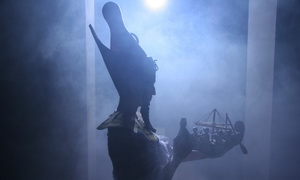
How did Hatshepsut’s boats manage such a voyage? And why did Pharaoh Hatshepsut order such an expedition? To answer these questions, a team of archeologists and scientist decided to build a replica Egyptian ship from the time of the New Kingdom.
Once the reconstruction is completed, the team intends to sail in the wake of Hatshepsut’s fleet aboard their reconstructed vessel to find the mythical land of Punt and prove that the Egyptians were a seafaring people.
Forgetting Dad (Germany)
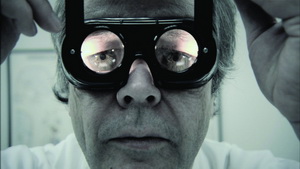
The Picture of The Napalm Girl (Germany)
AP photographer Nick Ut won the Pulitzer Prize for his shot – and the click of his shutter saved Kim Phuc’s life. He brought her to the nearest hospital and thanks to the publicity she was taken into a special clinic in Saigon.
Initially the trophy victim for the Western media, Kim Phuc and her photo were gratefully adopted by the Communist propaganda machine after North Vietnam won the war. Finally, she settled with her husband in the West and now lives with her family in Canada. “You may find this hard to believe but sometimes I like to think about the small girl who ran screaming down the street. She is not just a symbol of the war, she is a symbol of a cry for freedom!” says Kim Phuc today.
Nature
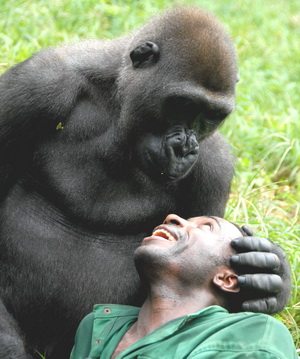
Taiwan\'s Volcanoes (Taiwan,China)
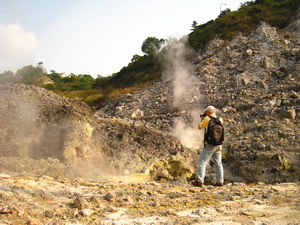
Seated on the boundary of the Eurasian Plate and also part of the Ring of Fire, Taiwan has volcanoes in its northern and eastern parts, and the Penghu Archipelago lying offshore of the Taiwan Strait also boasts distinctive terrain features formed due to volcanic activities caused by the seafloor of the South China Sea spreading about 18 million years ago.
Volcanoes under the sea to the east of Guishan Island attract scientists for exploration. Still another spot that appeals to scientists is the active Tatun Volcano Group in Taipei Basin. With that, they are now conducting all kinds of probing researches in the hope to better understand such a volcano adjacent to the Taipei Metropolis.
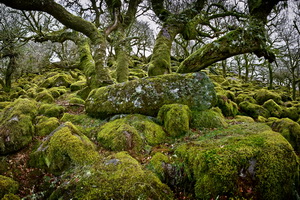
This is evolution in action, individual creatures under extreme pressure to overcome challenges from adversaries and their environment, pushing the boundaries of behaviour. Cutting-edge cinematic techniques capture unprecedented, astonishingly beautiful sequences: birds running and dancing on the water\'s surface in dazzlingly intricate displays of courtship and fidelity, fish outwitting predators by using their fins to take flight, flies competing in a mesmerising eyeball-inflation contest...
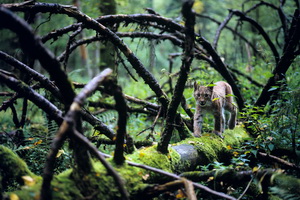
Wild Balkans (Austria)
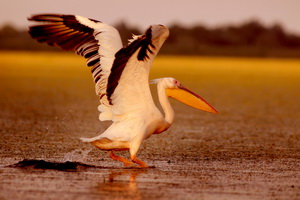
In Kopacki rit areas, birds are happy to live here. However, Due to the Yugoslav civil war in 1991, a number of mines were buried under ground, and have not yet been cleared, posing a hidden danger for the peace of this area. Wild boars have such strong sense of smell that they can find the mines under ground. In Tikvos areas, the number of vultures is declining. As the largest lake in the Balkans - Shkodra Lake, is a wonderland for a lot of birds. A riest has lived here for a long time.
Dobrudza area, where grows large amount of flowers and inhabits a lot of people with different nationalities. It also famous for mosquito. The endangered European mink also lives here. Biologists began to set traps in the reeds to observe the mink. In the evening of the winter, starlings fly in droves, changing the formation from time to time.
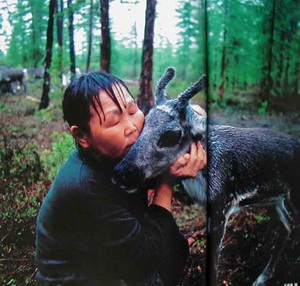
In 2003, the Reindeer Ewenkis came out of the forest and moved down to the new settlement built by the government. Now with hunting also banned, the Reindeer Ewenkis find themselves in a dilemma.The reindeers could not survive the “city life” either. So a small number of the tribe people moved back into the mountains again, back into their forest.
Liushia, a woman who’s husband has passed away, makes herself numb with alcohol. Besides the reindeers and her son, who is far away, there is nothing left for her in this world. Her younger brother, Vijia, is an alcoholic artist who is increasingly disorientated with life. He Xie expresses the sadness in his heart through his harmonica.
Time is passing… the sounds of deer bells are fading away… Maria Suo, the last chief of the tribe, watches the changing of time helplessly. But does the forest the Ewenkis used to know still belong to them?



